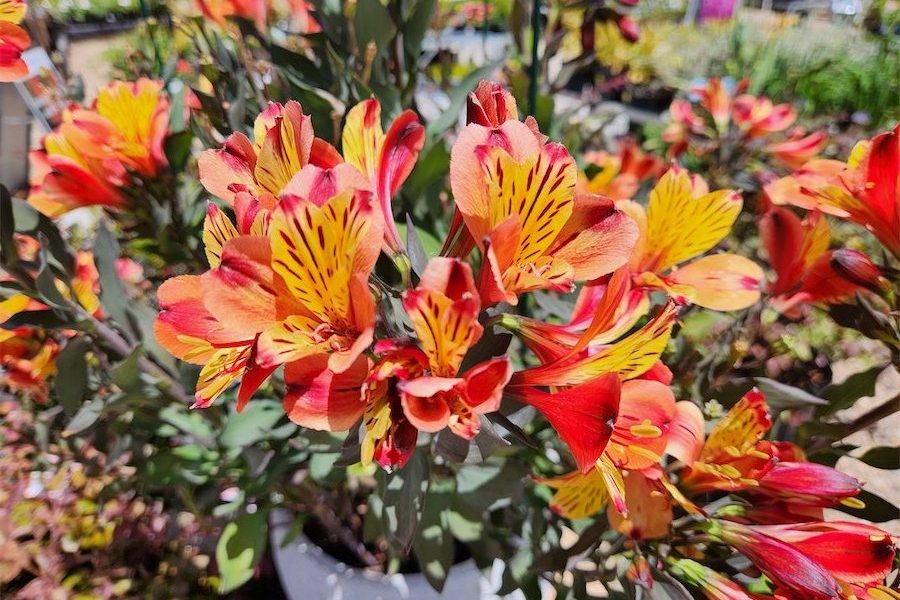
“Like any living thing, plants want to remain alive, and research shows that when certain plants are cut, they emit a ‘noise’ that could be interpreted as a cry,” writes “Whimsy” columnist CLIVE WILLIAMS.
A FRIEND claims to have a close affinity with a rubber plant he has owned for nine years. He says that when he asks it if it needs water, it responds telepathically.

Before writing my friend off as a nutter, I decided to do a bit of research to see whether his claim could be credible. I turned up some surprising facts.
A study conducted by the Royal Horticultural Society showed that plants do respond to the sound of your voice. There is evidence that plant cells perceive and respond to pressure waves, like the kind that are generated by sound in the environment, and touch – like someone walking up to a tree and hugging it. Whether they can communicate back to humans is unproven.
Research shows that speaking nicely to plants will support their growth, whereas yelling at them won’t. This has to do with vibrations and volume.
Plants react favourably to low levels of vibrations, around 115-250hz. They thrive when they listen to music between those parameters as the vibrations emulate stimuli in nature. But plants don’t like being exposed to music more than one to three hours a day. Jazz and classical music seem to be the best choice for ultimate plant stimulation.
Trees and plants like company and grow better when bonding with other plants. Peter Wohlleben, a German researcher who devoted his life to studying trees, says: “They can form bonds like an old couple, where one looks after the other.”
Plants do not have brains, nor a central nervous system (which is how intelligence is defined), so it’s considered impossible for them to have emotions or the ability to reason or feel. However, we know they are alive and respond to stimuli.
Plants can certainly sense water, light and gravity. Some can even sometimes mount an attack. For example, the Venus Fly Trap uses nectar and a well-designed landing pad to attract insects. If the insect does not move in time, snap – and the plant absorbs nutrients from the insect’s body.
Light is food for a plant, and the “aim” of a plant is to survive, so it will drop its lower leaves to preserve energy when light is not sufficient. Other common plant responses are the bending and growing of plants towards light.
Wisteria is a fast grower and uses tentacle-like spirals to clasp on to other mediums (such as plants and buildings) to reach more sunlight. Even so, most plants grow faster in the evening and at night than they do during the day. Research on circadian rhythms in plants shows that their “biological clock” stimulates night-time growth.
Like any living thing, plants want to remain alive, and research shows that when certain plants are cut, they emit a “noise” that could be interpreted as a cry. Plants suffer when they are injured, but it’s a much slower reaction, so most people think plants don’t feel anything.
Without plants and trees, life could not exist on earth. There would be no rain, our soils would be unprotected and the air would be unsuitable for breathing.
Perhaps my rubber-plant friend is more empathetic than I realised. Gardeners no doubt already know that humans can relate to plants in a very personal way.
Some plants can clearly be perverse. Weeds are the rebels of the plant world. It’s debatable what is a weed and what isn’t, but as Doug Larson observed: “A weed is a plant that has mastered every survival skill except for learning how to grow in rows.” And as humourist Will Rogers noted: “All you need to grow fine vigorous grass is a crack in your sidewalk.”
Clive Williams is a Canberra columnist
Who can be trusted?
In a world of spin and confusion, there’s never been a more important time to support independent journalism in Canberra.
If you trust our work online and want to enforce the power of independent voices, I invite you to make a small contribution.
Every dollar of support is invested back into our journalism to help keep citynews.com.au strong and free.
Thank you,
Ian Meikle, editor





Leave a Reply